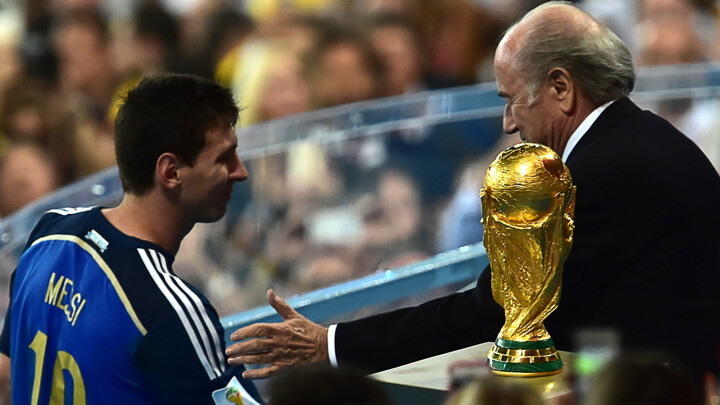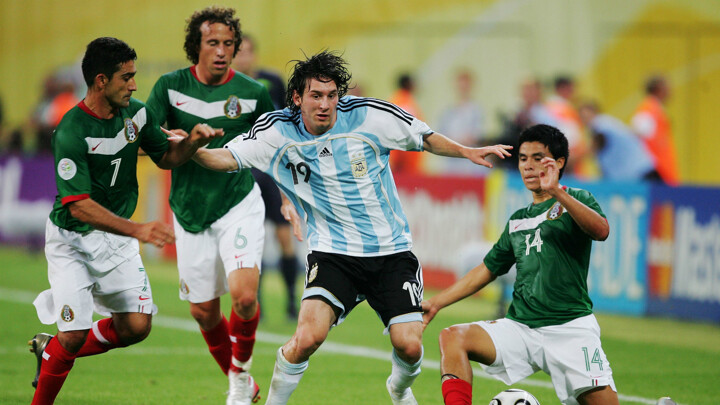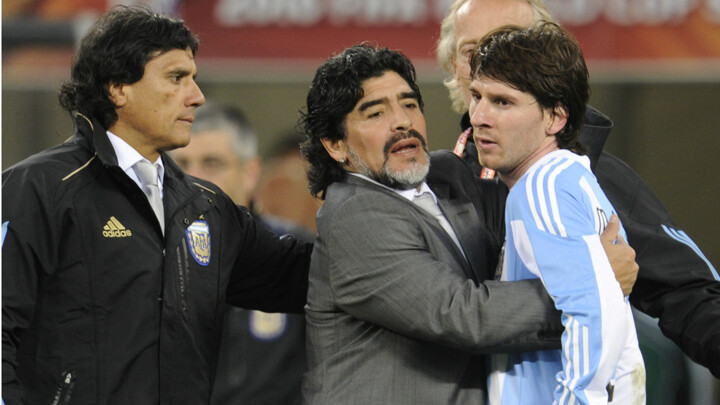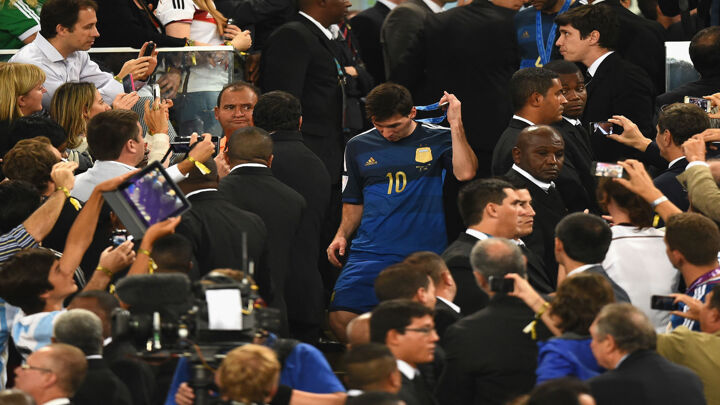The Barcelona star has a bittersweet history in the competition, failing to get his hands on the trophy after three attempts

When the ball starts rolling in this summer's Russia World Cup, all eyes will be on Argentina's standard-bearer Lionel Messi.
A talent without parallel, Messi has won everything there is to win at club level with Barcelona, but international success has so far proved rather more difficult.
A single Olympic gold medal in 2008 and a U-20 World Cup medal represents the No.10's entire trophy haul with his nation, while he has finished on the losing side in four senior finals.
It is the World Cup, however, that has brought him most pain, with Argentina falling short of the big prize on multiple occasions despite boasting the best player on the planet in their ranks.
Now, as Messi looks to make it fourth-time lucky in 2018, Goal looks back on his previous appearances in the world's biggest football extravaganza.
Germany 2006

In an age before Twitter and instant viral updates, the name Lionel Messi was only just becoming familiar to the football world outside Spain back in 2006.
Messi was just 18 going into his first World Cup, and rather than a starter the youngster was a wildcard pick in a team coached by Jose Pekerman and stacked with world-class talent.
Leo being Leo, however, it did not take him long to make his mark.
After sitting out Argentina's first game, Messi became the Albiceleste's youngest-ever World Cup player when he came off the bench in the 74th minute against Serbia & Montenegro. He needed just a handful of minutes to assist Hernan Crespo for his side's fourth of the game, and later latched onto a Carlos Tevez pass to make it 6-0 in a team performance that has gone down in history.
Messi's wonderful cameo was rewarded with a start in the final group game against Netherlands, a 0-0 draw that ensured Argentina would go through at the top of Group C. He then almost proved his team's supersub in the last 16, scoring after coming off the bench against Mexico late on with the score poised at 1-1; unfortunately the strike was ruled out for offside, although Maxi Rodriguez's blockbuster hit in extra time would make the difference.
In the quarter-final an opponent that would soon become depressingly familiar for Messi and Argentina awaited. Germany held the South Americans to a 1-1 draw after extra time, eventually prevailing on penalties. Messi, meanwhile, remained kicking his heels on the sidelines, and Pekerman's decision to ignore his young wonderkid in favour of Julio Cruz when he hauled a tiring Juan Roman Riquelme off would be slammed back home.
South Africa 2010

With Messi at 23 and swiftly establishing himself as one of the finest players in the history of world football, South Africa 2010 was the first international tournament to feature the Argentine as one of its biggest stars. What's more, Leo had teamed up with none other than his predecessor at No.10, Diego Maradona, the 1986 World Cup winner providing a chaotic but admittedly entertaining presence on the sidelines as Argentina coach.
The Barcelona wizard, however, was already feeling the pressure of carrying his nation alone. Mercurial playmaker Riquelme had quit international football the previous year and at 31 was prematurely out of the picture, robbing Messi of a creative partnership that had proved so formidable in the 2008 Olympics. The only support given was an ageing Juan Sebastian Veron, while at centre-forward a 20-year-old Gonzalo Higuain at least promised plenty of threat in front of the net.
Argentina's liabilities were not evident during a brilliant group stage. Messi was denied repeatedly by Nigeria, seeing four shots saved, but an early goal from Gabriel Heinze nevertheless saw Maradona's men safely past the Africans in a 1-0 win
Messi then had a hand in all four of his side's goals in a crushing 4-1 win over South Korea, a game in which Higuain netted Argentina's first World Cup hat trick since Gabriel Batistuta's triple against Jamaica in 1998. His own goal, however, remained elusive, and the pattern would repeat itself in a Group C dead rubber to close off the first round when Martin Demichelis and Martin Palermo found the net against Greece.
The last 16 saw more of the same, as Messi came to prominence as a provider rather than a scorer. Leo set up Tevez for Argentina's opener, with Carlitos and Higuain adding two more in a routine 3-1 win over Mexico. The wheels would then come off in spectacular fashion, once more against Germany: a dishevelled, shell-shocked team was thrashed 4-0, with Messi as powerless as anyone else to stop a damaging rout. Once again La Pulga was returning from a World Cup in the quarters, without a goal to his name.
Brazil 2014

"Now you're going to see, the World Cup Messi's gonna bring, Maradona is much greater than Pele". Brasil, decime qué se siente (Brazil, tell me how it feels) was the song on the lips of tens of thousands of Argentina fans that streamed over the border for a glimpse of their heroes in the World Cup held in neighbouring Brazil. Messi came perilously close to fulfilling the prophecy chanted to the tune of Creedence Clearwater Revival's Bad Moon Rising, but it was so near, yet so far in the end for the captain and his Albiceleste team-mates.
Handed the armband during qualifying by new coach Alejandro Sabella, Messi finally ended his World Cup goal drought 65 minutes into the group phase. The No.10 skipped through the Bosnia & Herzegovina defence to put Argentina 2-0 ahead, and Sabella's men held on to take victory in their opening game.
He was once again the hero against Iran, scoring the winner in injury time with a fine whipped strike, and added two more for good measure in a 3-2 thriller to beat Nigeria and send the Albiceleste into the last 16 with a 100 percent record. And while he may not have found the net against Switzerland, he played in Angel Di Maria to decide the clash deep into extra time.
Higuain's strike early on decided the quarter-final in Argentina's favour over Belgium, leading Messi into his first-ever last four clash. There was no way through the Netherlands defence in 120 minutes of tense football, but Messi was on target in the shoot-out and misses from Ron Vlaar and Wesley Sneijder meant the Albiceleste marched on into the final. The dream all-South American final would not happen, however: instead of Brazil they would once again meet Germany, who had dispatched the hosts 7-1 in Belo Horizonte the previous day.
For the third tournament running, Die Mannschaft had the measure of their frustrated opponents. Messi once again failed to hit the target and could only look at the trophy from afar after Mario Gotze's extra-time strike decided matters in the Maracana. The Golden Ball award for best player was scant consolation for a player who had given everything to take the big prize home to Argentina.
Incredibly, after three World Cups Messi is still waiting for his first knockout goal. Will 2018 prove fourth time lucky for both him and his nation?
